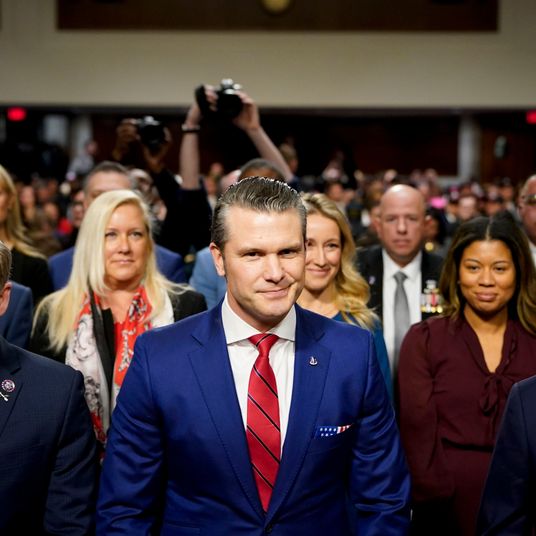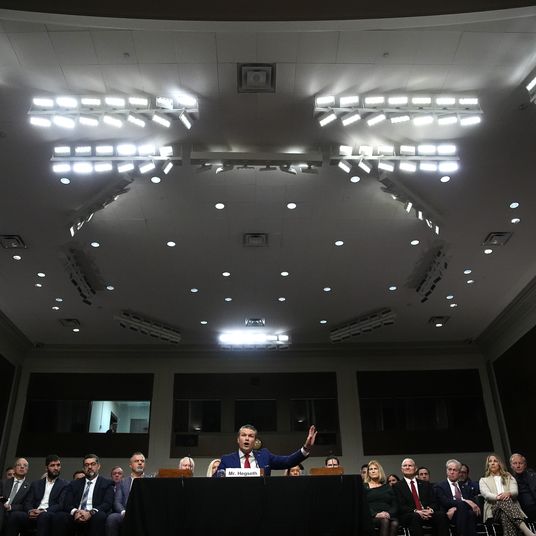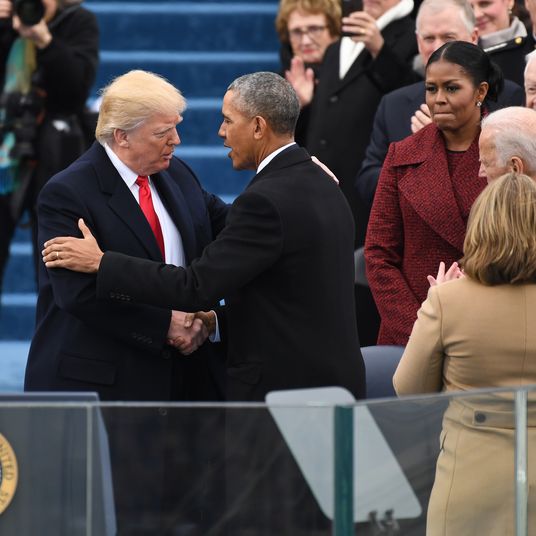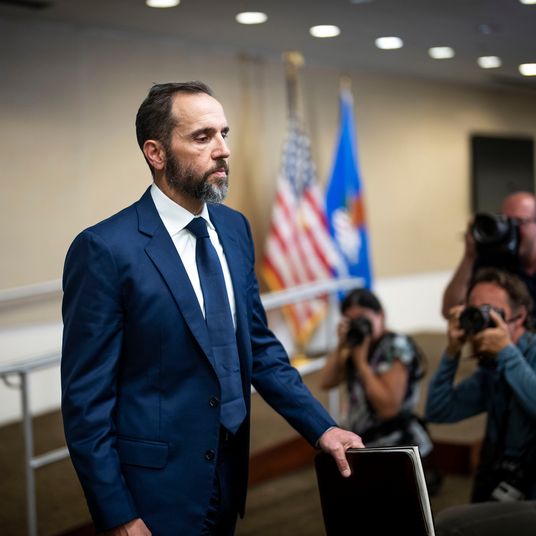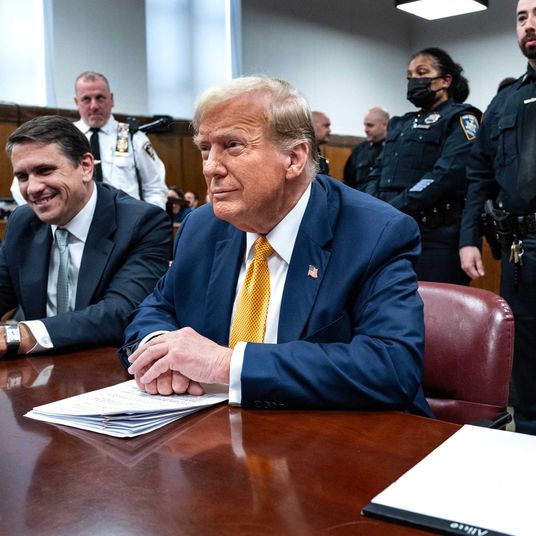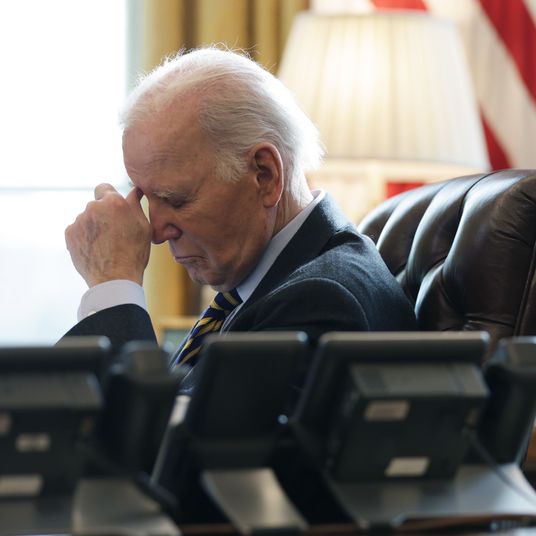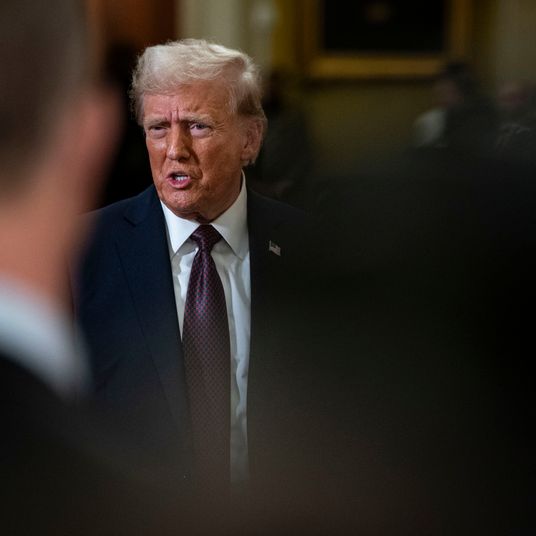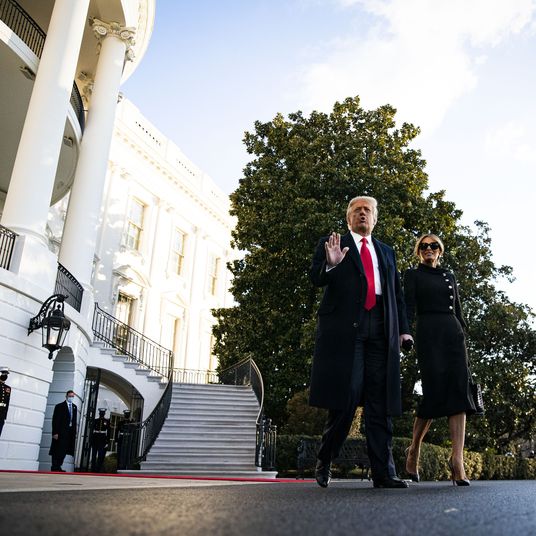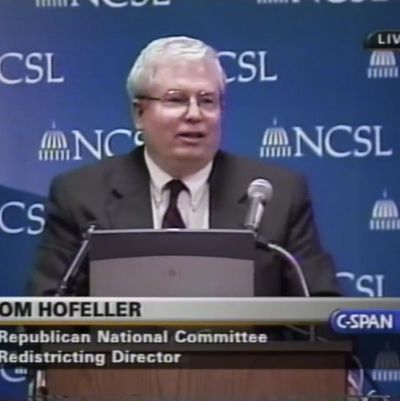
It’s a weird story involving an estranged daughter’s accidental discovery of massive files from her late father’s computer, which she incidentally shared with a liberal advocacy group. But it just might change political history if the U.S. Supreme Court, which was widely expected to okay the Trump administration’s plan to include an immigrant-repelling citizenship question in the 2020 census, takes a look at this fresh evidence, which makes the whole scheme appear politically motivated. The New York Times broke the story today:
Thomas B. Hofeller achieved near-mythic status in the Republican Party as the Michelangelo of gerrymandering, the architect of partisan political maps that cemented the party’s dominance across the country.
But after he died last summer, his estranged daughter discovered hard drives in her father’s home that revealed something else: Mr. Hofeller had played a crucial role in the Trump administration’s decision to add a citizenship question to the 2020 census.
Files on those drives showed that he wrote a study in 2015 concluding that adding a citizenship question to the census would allow Republicans to draft even more extreme gerrymandered maps to stymie Democrats. And months after urging President Trump’s transition team to tack the question onto the census, he wrote the key portion of a draft Justice Department letter claiming the question was needed to enforce the 1965 Voting Rights Act — the rationale the administration later used to justify its decision.
Material from these files has now been included in a filing with SCOTUS by groups siding with New York’s efforts to strike down the Census question:
The new evidence demonstrates a direct through-line from Dr. Hofeller’s conclusion that adding a citizenship question would advantage Republican and non-Hispanic whites to DOJ’s ultimate letter. The new evidence thus not only contradicts testimony in this case, but it shows that those who constructed the VRA rationale knew that adding a citizenship question would not benefit Latino voters, but rather would facilitate significantly reducing their political power.
So it’s pretty strong evidence not only that the administration, with Commerce Secretary Wilbur Ross in the lead role, never took the Voting Rights Act rationale very seriously, but that it was originally suggested by someone whose only professional interest in the case was to maximize GOP and white voting power.
I’m sure friends of the administration will soon challenge the events that led to this disclosure, particular this part of the story:
Late last year, Ms. Hofeller said, she contacted the Raleigh office of the advocacy group Common Cause, seeking its help in finding a lawyer unconnected to her father to help settle his estate. Only after several conversations with a staff member there did she mention the hard drives in passing, she said, remarking almost jokingly that an expert on gerrymanders might find a lot in them that was of interest …
In fact, Common Cause had recently filed a new lawsuit in state court, challenging gerrymandered maps of North Carolina’s legislative districts drawn by Mr. Hofeller himself. When the staff member told her of the lawsuit, Ms. Hofeller said, she thought, “Wow — this might be of use.”
To make a long story short, a law firm representing Common Cause in the North Carolina case is also involved in the New York litigation over the Census citizenship question, which is how the material made its way into that case. But the administration’s allies are sure to find it all very fishy.
The other big question is whether it’s too late for new evidence that might influence SCOTUS’s handing of the Census case. Three adverse lower-court rulings were appealed by the administration to SCOTUS on an emergency basis because Census questions need to be formulated and deployed by June. So SCOTUS held oral arguments in April (which were universally interpreted as signaling approval of the administration’s plan by the requisite five justices) and a decision has been expected quite imminently.
If nothing else, the new evidence is a testament to the cynicism and mendacity of Trump administration officials piously claiming they needed the citizenship question to enforce the VRA when nothing could have been further from their minds. But it’s possible the game is now up, thanks to Hofeller’s incaution in not arranging for the posthumous destruction of his dirty work.







